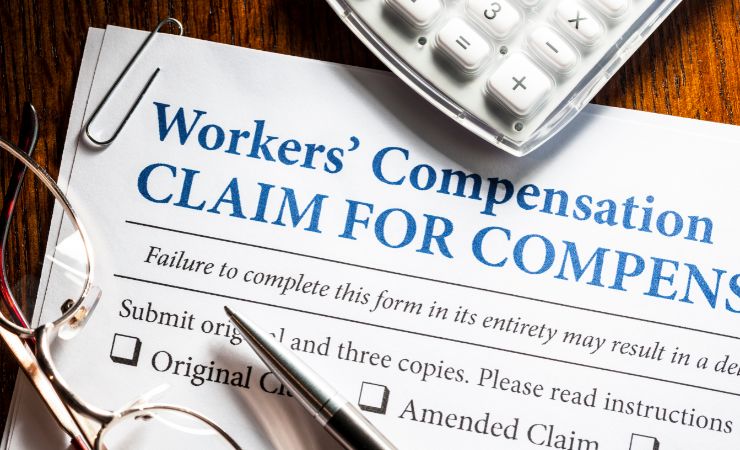Texas Workers’ Compensation Laws – All You Need to Know
The workers’ compensation laws in each state aim to provide financial security to workers injured on the job. Unlike most other states, Texas does not require employers to carry workers’ compensation insurance. While this may seem to present problems to injured workers, any employer that decides not to purchase this insurance coverage can face problems as well if an employee suffers any type of injury at work.
Workers’ compensation aims to benefit both workers and their employers. When it comes to the benefits of workers, they have a streamlined recovery process readily available to them after sustaining an injury at work. For employers, workers’ compensation insurance typically prevents them from facing civil liability for injured workers’ damages. If an employer does not have workers’ compensation insurance, their employee could not file a workers’ compensation claim in response to a workplace injury, but they could file a personal injury suit against their employer instead.
How to File a Workers’ Compensation Claim
If your employer has workers’ compensation insurance and you suffer an injury while working, you have the right to pursue compensation for your damages through the workers’ compensation claim filing process. This is similar to almost any other type of insurance claim, but the claimant faces an additional layer of complexity due to the involvement of their employer in the process.
After an injury at work, your first concern should be your health and well-being. It’s essential to seek medical care, even if you think your injury is minor. You should also report the injury to your supervisor, and they are legally required to create an incident report of the injury. If the employer has workers’ compensation insurance, they are also required to furnish you with the materials needed to file your claim for benefits.
Once the insurance company receives your claim, they will investigate the incident in question and determine your eligibility for benefits. If the claim is approved, the injured claimant can potentially recover full repayment of all their medical expenses along with ongoing disability benefits until they are able to return to work. Not all workers’ compensation policies are alike, so it’s crucial for an injured worker to seek legal counsel they can trust to help them maximize their claim payout.
Filing a Personal Injury Claim Against a Texas Employer
Unfortunately, not all injured workers have the ability to file workers’ compensation claims in response to their injuries on the job. If your employer does not have workers’ compensation insurance and you suffer an injury at work, you likely have the ability to file a personal injury claim against your employer. This type of civil action is more complex and demanding than a worker’s compensation claim, but you stand to gain far more of a recovery than you would through workers’ compensation.
Under Texas’ personal injury statutes, the plaintiff has the right to claim compensation for economic damages such as medical expenses, lost income, and property damage. They may also seek compensation for long-term medical treatment costs they are likely to incur, diminished future earning capacity, and their pain and suffering. Many plaintiffs are not fully aware of the various types of compensation available to them until they secure reliable legal counsel.
If you must file a personal injury claim against your employer, this can be a daunting situation, and many people faced with this choice are intimidated by the prospect of facing their employer’s in-house legal team and/or facing adverse treatment from their employer. However, if you intend to file a personal injury claim in good faith, your employer may not retaliate against you. If they do, you can potentially hold them accountable for further damages, and they may face punitive damages as well.
FAQs About Texas Workers’ Compensation Law
What Happens If an Employer Does Not Have Workers’ Compensation Insurance in Texas?
If an injury occurs in the workplace and the employer does not have workers’ compensation insurance, the injured worker has the right to file a civil suit directly against the employer. In a personal injury claim, the plaintiff must identify the party or parties responsible for their damages, prove the full scope of those damages, and go on to prove they are the direct results of the defendant’s actions.
Can I Be Disqualified From Filing a Claim for Workers’ Compensation Benefits?
Most workplace injuries are covered under workers’ compensation insurance, but there are exceptions. For example, if you caused the injury because you were working while intoxicated by drugs or alcohol, this may preclude you from seeking workers’ compensation benefits. If you are concerned about your eligibility to file a workers’ compensation claim in Texas, it is crucial to speak with an experienced attorney as soon as possible.
What Happens If a Work Injury Is Fatal?
In the event that a fatal injury occurs in a Texas workplace, the victim’s family may have the ability to claim death benefits from the employer’s insurance carrier. Alternatively, if the employer does not have workers’ compensation insurance that includes death benefits, the victim’s family may be able to file a wrongful death claim instead. While similar to a personal injury case in several ways, a wrongful death claim demands experienced legal counsel familiar with the state’s wrongful death statutes.
How Much Does It Cost to Hire an Attorney for a Workers’ Compensation Claim?
Most of the attorneys who accept workers’ compensation cases and personal injury claims against employers operate on a contingency fee basis. With this type of billing arrangement, the plaintiff pays nothing upfront for the cost of legal counsel and only parts with a percentage of their final case award to pay their attorney. This ensures legal representation is accessible and affordable to those who need it most.
The attorneys at Stevenson & Murray understand how distressed and uncertain the victim of any workplace injury may be in the aftermath of their experience. We have helped many Texas clients navigate complex workers’ compensation claims and civil suits against their employers. Whatever your case entails, we will leverage our professional experience to your benefit and help you recover as fully as the law allows. Contact us today and schedule a consultation with our team to learn more about the ways we can assist you.

Get Help Today
Request a Free Consultation
"*" indicates required fields


